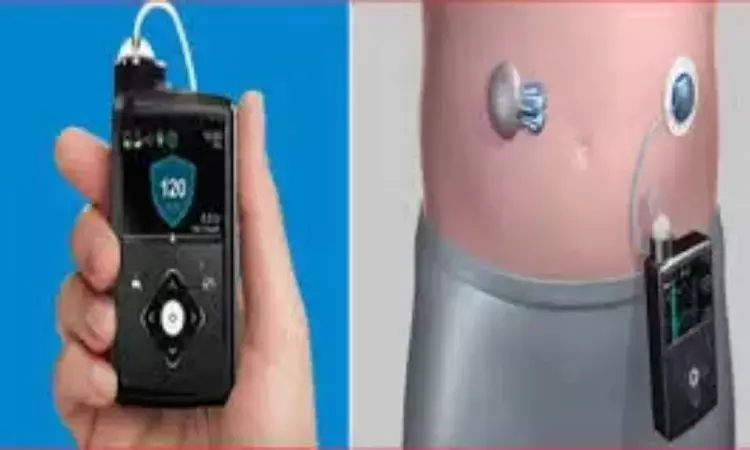- Home
- Medical news & Guidelines
- Anesthesiology
- Cardiology and CTVS
- Critical Care
- Dentistry
- Dermatology
- Diabetes and Endocrinology
- ENT
- Gastroenterology
- Medicine
- Nephrology
- Neurology
- Obstretics-Gynaecology
- Oncology
- Ophthalmology
- Orthopaedics
- Pediatrics-Neonatology
- Psychiatry
- Pulmonology
- Radiology
- Surgery
- Urology
- Laboratory Medicine
- Diet
- Nursing
- Paramedical
- Physiotherapy
- Health news
- Fact Check
- Bone Health Fact Check
- Brain Health Fact Check
- Cancer Related Fact Check
- Child Care Fact Check
- Dental and oral health fact check
- Diabetes and metabolic health fact check
- Diet and Nutrition Fact Check
- Eye and ENT Care Fact Check
- Fitness fact check
- Gut health fact check
- Heart health fact check
- Kidney health fact check
- Medical education fact check
- Men's health fact check
- Respiratory fact check
- Skin and hair care fact check
- Vaccine and Immunization fact check
- Women's health fact check
- AYUSH
- State News
- Andaman and Nicobar Islands
- Andhra Pradesh
- Arunachal Pradesh
- Assam
- Bihar
- Chandigarh
- Chattisgarh
- Dadra and Nagar Haveli
- Daman and Diu
- Delhi
- Goa
- Gujarat
- Haryana
- Himachal Pradesh
- Jammu & Kashmir
- Jharkhand
- Karnataka
- Kerala
- Ladakh
- Lakshadweep
- Madhya Pradesh
- Maharashtra
- Manipur
- Meghalaya
- Mizoram
- Nagaland
- Odisha
- Puducherry
- Punjab
- Rajasthan
- Sikkim
- Tamil Nadu
- Telangana
- Tripura
- Uttar Pradesh
- Uttrakhand
- West Bengal
- Medical Education
- Industry
Use of open-source automated insulin delivery tied to better target blood sugar range: NEJM

New Zealand: The use of open-source automated insulin delivery (AID) systems versus a sensor-augmented insulin pump in adults and children having type 1 diabetes led to a notably higher percentage of time in the target blood sugar, a recent study has stated. The findings were published in the New England Journal of Medicine.
Sutomated insulin delivery (AID) systems are automated (or semi-automated) systems designed to assist people with diabetes, primarily those with type 1 diabetes. The system automatically adjusts insulin delivery to control blood sugar levels. The systems are also referred to as artificial pancreas, but the term has no universally accepted or precise definition.
Considering the increased use of open-source AID systems by type 1 diabetes patients, Martin I. de Bock, Department of Pediatrics, University of Otago, Christchurch, New Zealand, and colleagues aimed to determine the safety and efficacy of an open-source automated insulin delivery (AID) system.
For this purpose, type 1 diabetes patients (n=97) were assigned to a multicenter, open-label, randomized, controlled trial in a 1:1 ratio to use an open-source AID system (n=44) or a sensor-augmented insulin pump (control; n=53).
Children (aged 7 to 15 years) and adults (aged 16 to 70) were included in the study. The AID system was a modified form of AndroidAPS 2.8 coupled with a preproduction DANA-i insulin pump and Dexcom G6 CGM which has a user interface of an Android smartphone application. Between days 155 and 168, the percentage of time in the target glucose range of 70 to 180 mg per deciliter (the final two trial weeks).
Based on the study, the researchers found the following:
- In the AID group, there was an increase in the meantime in the target range from 61.2±12.3% to 71.2±12.1% and a decrease from 57.7±14.3% to 54.5±16.0% in the control group (adjusted difference, 14 percentage points), with no treatment effect according to age.
- Three hours and 21 minutes more were spent by patients in the AID group in the target range per day compared to patients in the control group.
- In either group, no severe hypoglycemia or diabetic ketoacidosis was observed.
- Owing to connectivity issues, two patients in the AID group withdrew from the trial.
"Open-source AID system use in In children and adults with type 1 diabetes led to a significantly higher percentage of time in the target glucose range over the use of a sensor-augmented insulin pump at 24 weeks," the researchers concluded.
Reference:
Burnside MJ, Lewis DM, Crocket HR, Meier RA, Williman JA, Sanders OJ, Jefferies CA, Faherty AM, Paul RG, Lever CS, Price SKJ, Frewen CM, Jones SD, Gunn TC, Lampey C, Wheeler BJ, de Bock MI. Open-Source Automated Insulin Delivery in Type 1 Diabetes. N Engl J Med. 2022 Sep 8;387(10):869-881. doi: 10.1056/NEJMoa2203913. PMID: 36069869.
Dr Kartikeya Kohli is an Internal Medicine Consultant at Sitaram Bhartia Hospital in Delhi with super speciality training in Nephrology. He has worked with various eminent hospitals like Indraprastha Apollo Hospital, Sir Gangaram Hospital. He holds an MBBS from Kasturba Medical College Manipal, DNB Internal Medicine, Post Graduate Diploma in Clinical Research and Business Development, Fellow DNB Nephrology, MRCP and ECFMG Certification. He has been closely associated with India Medical Association South Delhi Branch and Delhi Medical Association and has been organising continuing medical education programs on their behalf from time to time. Further he has been contributing medical articles for their newsletters as well. He is also associated with electronic media and TV for conduction and presentation of health programs. He has been associated with Medical Dialogues for last 3 years and contributing articles on regular basis.
Dr Kamal Kant Kohli-MBBS, DTCD- a chest specialist with more than 30 years of practice and a flair for writing clinical articles, Dr Kamal Kant Kohli joined Medical Dialogues as a Chief Editor of Medical News. Besides writing articles, as an editor, he proofreads and verifies all the medical content published on Medical Dialogues including those coming from journals, studies,medical conferences,guidelines etc. Email: drkohli@medicaldialogues.in. Contact no. 011-43720751


